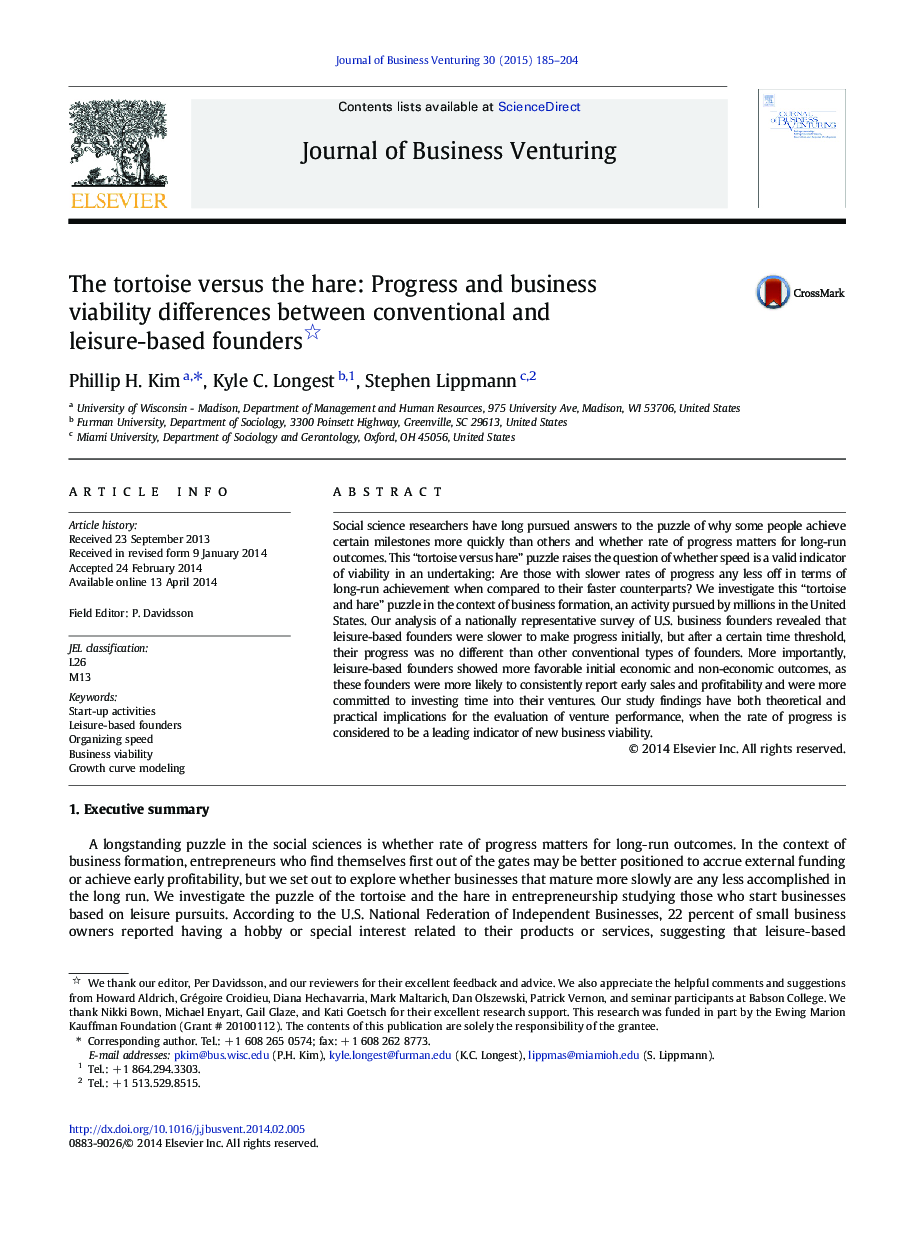| کد مقاله | کد نشریه | سال انتشار | مقاله انگلیسی | نسخه تمام متن |
|---|---|---|---|---|
| 1019318 | 940643 | 2015 | 20 صفحه PDF | دانلود رایگان |
• We study if rate of progress starting new businesses is a valid indicator of new business viability.
• We examine this puzzle by contrasting progress between leisure-based founders with other founders, who start businesses for different reasons.
• We predict leisure founders are likely to progress slower initially but eventually progress as a similar rate over time with other founders.
• We also predict leisure-based founders are more likely than other founders to achieve positive economic- and non-economic outcomes.
• Our analyses of nationally representative sample of early-stage business founders in the US support our predictions.
Social science researchers have long pursued answers to the puzzle of why some people achieve certain milestones more quickly than others and whether rate of progress matters for long-run outcomes. This “tortoise versus hare” puzzle raises the question of whether speed is a valid indicator of viability in an undertaking: Are those with slower rates of progress any less off in terms of long-run achievement when compared to their faster counterparts? We investigate this “tortoise and hare” puzzle in the context of business formation, an activity pursued by millions in the United States. Our analysis of a nationally representative survey of U.S. business founders revealed that leisure-based founders were slower to make progress initially, but after a certain time threshold, their progress was no different than other conventional types of founders. More importantly, leisure-based founders showed more favorable initial economic and non-economic outcomes, as these founders were more likely to consistently report early sales and profitability and were more committed to investing time into their ventures. Our study findings have both theoretical and practical implications for the evaluation of venture performance, when the rate of progress is considered to be a leading indicator of new business viability.
Journal: Journal of Business Venturing - Volume 30, Issue 2, March 2015, Pages 185–204
